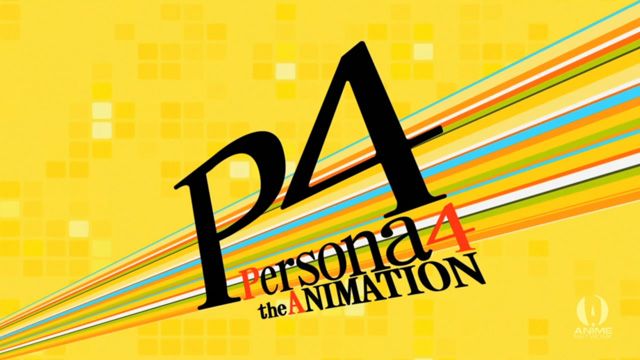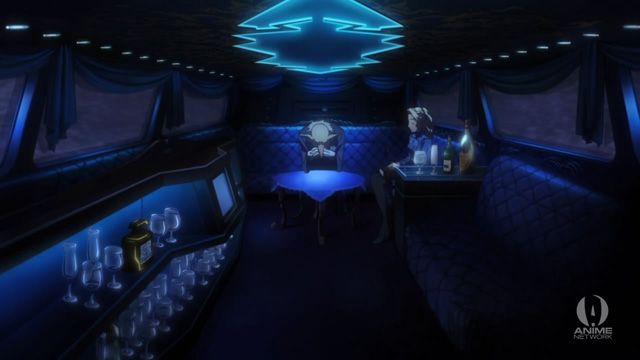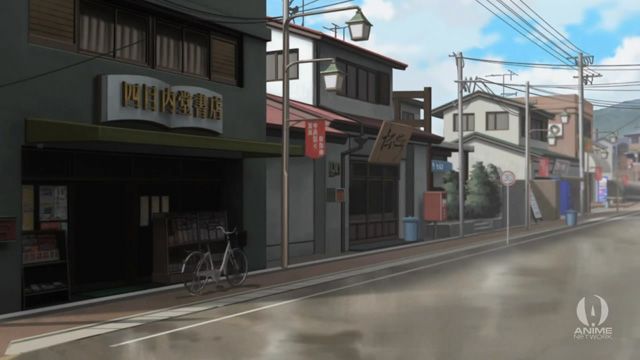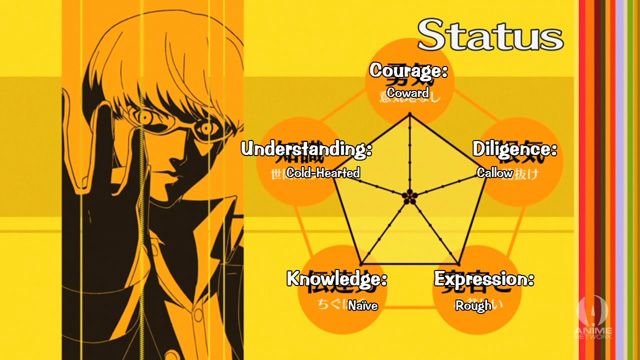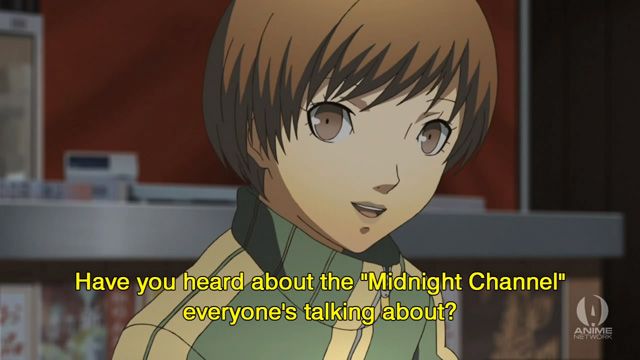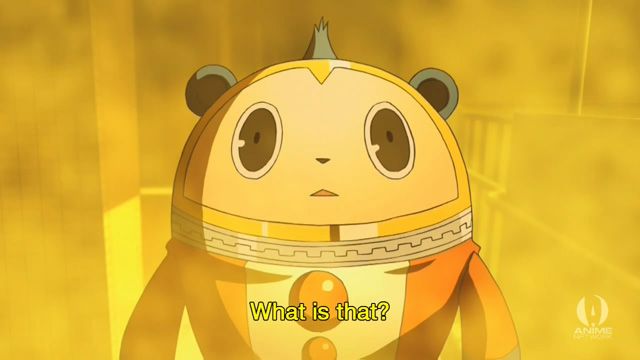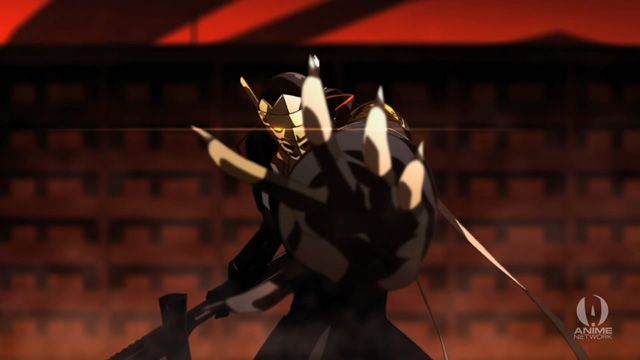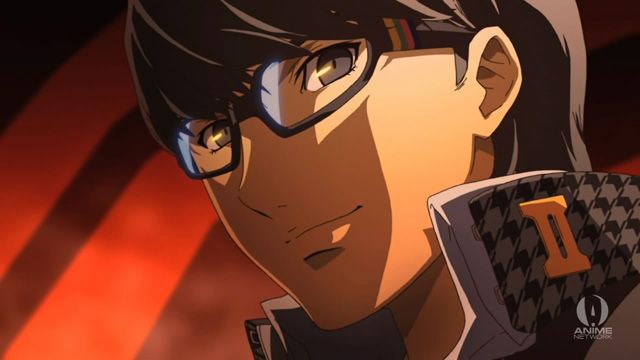Persona 4: The Animation, an anime adaption of Atlus' well-known JRPG, premiered a few days ago, and it's been drawing a lot of attention from fans of the series. (It's being simulcasted, so you can legally watch it weekly here or on Hulu.) I know I was excited for it, and I spent a good amount of the day of its release refreshing a page until it went up.
And, not surprisingly, it met my expectations, though there are some... elements of the show that are quite unique and might prove to be interesting or rather annoying as the series goes on.
It's definitely an adaptation of a game, but how well does it perform at that? Read on to find out.
The episode begins where the game does, with Yu (the main character [MC] in the game, "Souji Seita" in the manga, and now "Yu Narukami" in the anime) in the Velvet Room with Margaret and Igor, learning of what will happen to him over the course of the next year, after which he wakes up from the dream and meets his uncle and cousin, the people he'll be living with as he spends his next year in the small country town of Inaba. He goes to school and makes friends with Chie Satonaka, Yosuke Hanamura, and Yukiko Amagi, his classmates. Strange murders begin happening in the town shortly after his arrival, and no one knows who the killer is. Adding to the strangeness are rumors of "The Midnight Channel", a television program that appears at midnight on dead TVs in the town. Soon Yu sees visions in the Midnight Channel and learns that he somehow has the ability to enter a strange world through the television.
That's basically where the whole plot of the game gets set up. Things branch out from there, in ways I'd rather not discuss.
The art for the anime is striking, looking as though they took Soejima's character designs straight off the page and threw them into the show, though they passed through some weird filter beforehand that made them more realistic-looking. The background design is especially impressive; there are several shots in the anime that are near-perfect recreations of sets in the game. (See the picture of the shopping district above for an excellent example of that.) They really did their research.
Though that research leads to some of the "unique elements" I mentioned before. Whenever Yu goes to sleep for the day in the anime, they show the calendar that marks the day and shows the weather, exactly as they do in the game. When the show cuts to commercial, they show the social stats screen, in nearly the exact same way it appears in-game, but since this is only the first episode, all of Yu's stats are at their lowest point. (Courage: Coward, Understanding: Cold-Hearted, Expression: Rough, etc.)
I do appreciate that they're trying to put those aspects of the game in here; they're very interesting, and they reflect the aesthetic design of the original game well. (And the aesthetic design was one of the most unique things about the game.) It just seems... arbitrary. Corny or hokey, even.
However, this is the first episode of the show. It's hard to say that those elements won't come into play in interesting ways later. The social stat progress could be really cool over the course of the series, indicating a progression in Yu's character or perhaps keying into individual character arcs (if they choose to put S. Link stories in here, which looks likely from the inclusion of the sports club members in a few trailers), but right now it just seems weird.
Though it does disappoint me that several of those character arcs likely won't be in here. This is going to be your average twenty-six episode series; there won't be enough time to make two-/three-episode arcs for every important character in the game. Then again, those arcs are heavily reliant on individual choice in the game; Yu's interactions in those S. Links are what set him apart, give him the personality you choose, make him as much a player avatar as an individual character. Here there is no choice. It's a linear anime, so that's to be expected. At the same time, it's a shame you won't get to see those characters progress. It's even more of a shame that there'll likely be no romantic interest for Yu due to this, especially considering how that affects the player's motivations later in the game's story. But hey, it's hard to complain about that because that's more of an issue with the medium than with what they're doing with the medium.
As far as I'm concerned, it's more reason that you should probably play the game before watching the show. You should experience those characters that way, when you can choose how to interact with them, when you can attain your own impressions on how they are, rather than only seeing them through the filter of a more pre-defined experience.
And, when you look at it, it's well-done, as well as you can do with an adaptation of a game like this. They brought back most (if not all; I'm not sure) of the original Japanese cast for the game, and a few of the characters sound better than they did last time (Chie seems especially improved, so I'm not sure if she has the same seiyuu or not). Teddie suffers from the same issues as he did in the original Japanese version. His first statement in the anime is, "Kuma wa kuma kuma," if that brings back any memories for you. ("Kuma" is "bear" in Japanese, and in the Japanese version, Teddie is just called "Kuma".) I never got far enough in the Japanese version of the game to see if he got any better about that, but right now hearing "kuma" in every sentence is really annoying.
The first episode ends with Yu summoning his first Persona, Izanagi, a being in Japanese mythology believed to have created most of Japan and its deities, after which Izanagi proceeds to beat the hell out of several Shadows (monsters that inhabit the television world) in one of the most well-animated fight scenes I've seen in a while. It's ridiculous and filled with slow-mo effects, but it's just so goddamn well-done and fun to watch. They also re-use the first-battle version of "Reach Out To The Truth" from the original game for the sequence, which is rather appropriate.
Overall, despite the issues that are inherent with turning Persona 4 into a twenty-six episode television series, it's as good as it could possibly be. Everything is carried over well (at least so it seems), the aesthetics are capture well (in both art and music), the characters are still great, and it's... Persona 4. And I really like Persona 4, so I'm happy with that.
It's worth watching if you're at all a fan of the game, and it's definitely the best show I've yet to see this season.

